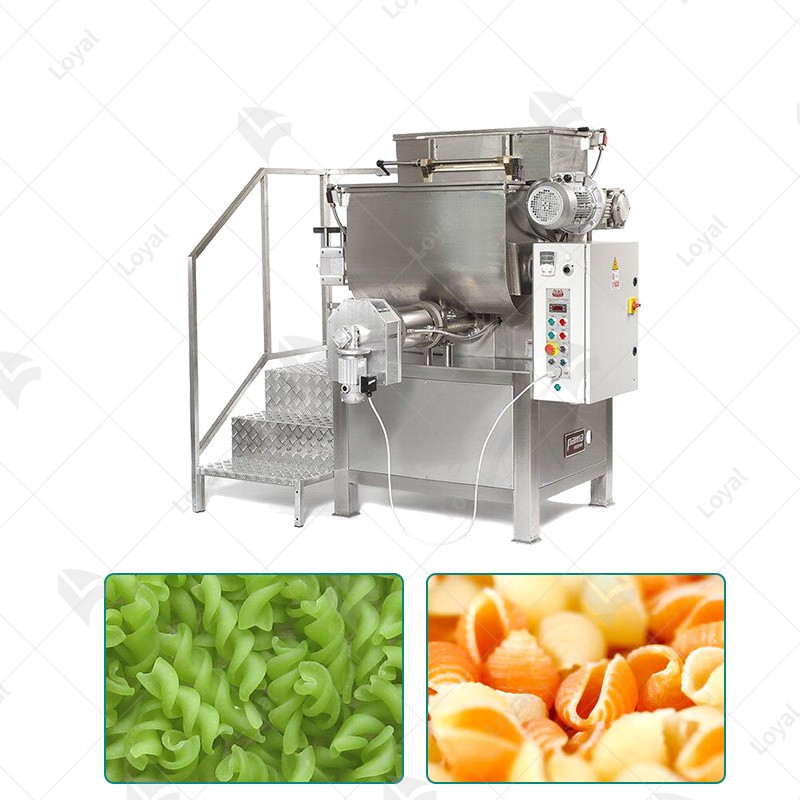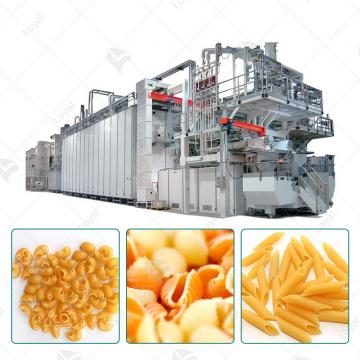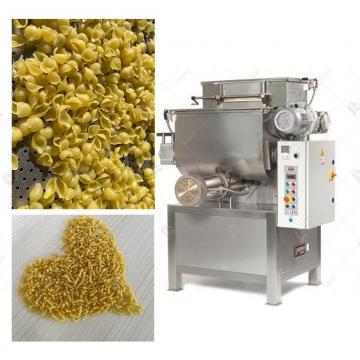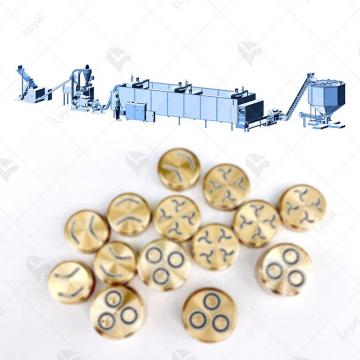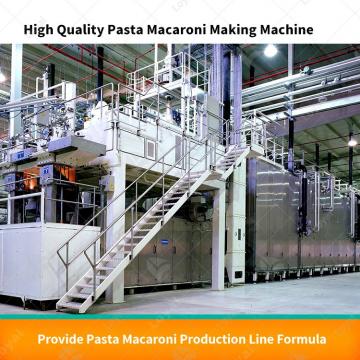The Ultimate Guide to Fully Automatic Noodle Machines in 2024
The Ultimate Guide to Fully Automatic Noodle Machines in 2024
Definition of fully automatic noodle machine
Shandong Loyal Industrial Co., Ltd. has incorporated advanced technologies from Gidamak and ITALGI S.r.l. in the production of its macaroni.In the dynamic landscape of food manufacturing, automation stands as a cornerstone, revolutionizing processes and outcomes. This introduction explores the profound significance of automation in the food manufacturing industry, setting the stage for an insightful journey into the transformative impact of fully automatic pasta manufacturing machines. As we delve into the exploration of high-efficiency features and unmatched performance, the narrative unfolds with a focus on enhancing the core aspects of pasta production.
Components of a fully automatic pasta making machine
To comprehend the innovation driving the efficiency revolution, this section defines the components of a fully automatic pasta manufacturing machine. We navigate through the technological advancements propelling the fusion of full automation with high efficiency. The discussion meticulously links the distinct features of fully automatic systems with unparalleled performance, laying a solid foundation for the exploration ahead.
In essence, a fully automatic pasta manufacturing machine comprises intricate components designed to optimize the production process. These include automated mixing systems, precision extruders, drying chambers, and packaging units. Technological advancements, such as artificial intelligence-driven controls and real-time monitoring, contribute to the seamless integration of these components. The convergence of cutting-edge technology with traditional pasta-making craftsmanship defines the modern fully automatic pasta manufacturing machine, setting the stage for unparalleled efficiency.
Features of fully automatic noodle machine
Embarking on a journey of discovery, we delve into the innovative features that make fully automatic pasta manufacturing machines stand out. Precision controls, employment of advanced materials, and streamlined processes take center stage. The emphasis here is on how these features collectively contribute to not only increased production rates but also unmatched performance, marking a paradigm shift in the pasta manufacturing landscape.
Precision controls play a pivotal role in ensuring every stage of pasta production is finely tuned. Automated sensors and monitoring systems enable real-time adjustments, guaranteeing consistency in texture and quality. The use of advanced materials, such as durable and food-grade alloys, enhances the longevity and reliability of the machine, reducing downtime and maintenance requirements.
Streamlined processes, facilitated by advanced robotics and intelligent workflow management, further elevate efficiency. From the precise measurement of ingredients to the automated shaping and cutting of pasta, every step is optimized for speed and accuracy. The result is not just efficient pasta production but a level of performance that surpasses traditional methods.
Environmental protection practice of fully automatic noodle machine
The journey continues with a close examination of energy-saving practices seamlessly integrated into fully automatic pasta manufacturing. We explore the incorporation of sustainable materials and energy-efficient technologies, highlighting the positive environmental impact of adopting fully automatic systems. This section reinforces the commitment to not only efficiency but also responsible and eco-friendly pasta production.
Energy-saving practices in fully automatic pasta manufacturing machines are multifaceted. The use of sustainable materials involves the incorporation of recyclable components and eco-friendly construction materials. Additionally, energy-efficient technologies, such as regenerative braking systems and intelligent power management, contribute to minimizing energy consumption throughout the production cycle.
The positive environmental impact goes beyond energy savings. Reductions in waste, both in terms of raw materials and energy, align with the principles of eco-friendly pasta production. Fully automatic pasta manufacturing machines are designed not just for efficiency but with a holistic approach that considers the environmental footprint, making them a sustainable choice for modern food manufacturing.
Case Studies: Success Stories in Efficiency and Unmatched Performance
Real-world success stories take the spotlight, featuring industry giants such as Barilla, Banza, Jovial, "Colavita," and "Garofalo." These companies have successfully embraced fully automatic pasta manufacturing machines, optimizing efficiency while achieving unmatched performance. Their experiences provide valuable insights, lessons learned, and best practices for businesses contemplating the adoption of automated systems.
Challenges to overcome in fully automated pasta manufacturing
While the road to efficiency and unmatched performance is paved with innovation, challenges can arise during the implementation of fully automatic pasta manufacturing machines. This section identifies potential hurdles and offers innovative solutions and strategies to overcome them. Emphasis is placed on addressing challenges to maximize the benefits of automation, ensuring both efficiency and unmatched performance.

Advancements in Fully Automatic Pasta Manufacturing
As we look to the future, this section explores emerging trends and advancements in fully automatic pasta manufacturing. Predictions for developments in efficiency, energy savings, and technological innovations are presented, reflecting the evolving landscape of the pasta manufacturing industry, with automation as a key driver of progress.
Conclusion
In conclusion, we recap the key points on fully automatic pasta manufacturing, emphasizing high efficiency and unmatched performance. The transformative impact of automation on achieving efficiency and cost-effectiveness is highlighted. Businesses are encouraged to make informed decisions, considering both efficiency and unmatched performance in their journey to adopt fully automatic pasta manufacturing machines.
Frequently Asked Questions About Pasta Manufacturing Machines
1. What challenges might businesses face when implementing these machines?
Challenges may include initial setup costs, workforce training, and adapting existing processes to automation. However, innovative solutions and strategies are available to overcome these challenges and ensure a smooth transition to fully automatic pasta manufacturing.
2. Can these machines be customized to specific pasta production needs?
Yes, many fully automatic pasta manufacturing machines offer customization options to cater to specific production requirements. This flexibility allows businesses to adapt the machines to different pasta shapes, sizes, and production volumes.
3. What is the environmental impact of adopting fully automatic pasta manufacturing systems?
Adopting fully automatic systems can have a positive environmental impact. Energy-efficient technologies, sustainable materials, and reduced waste contribute to a more eco-friendly pasta manufacturing process.

